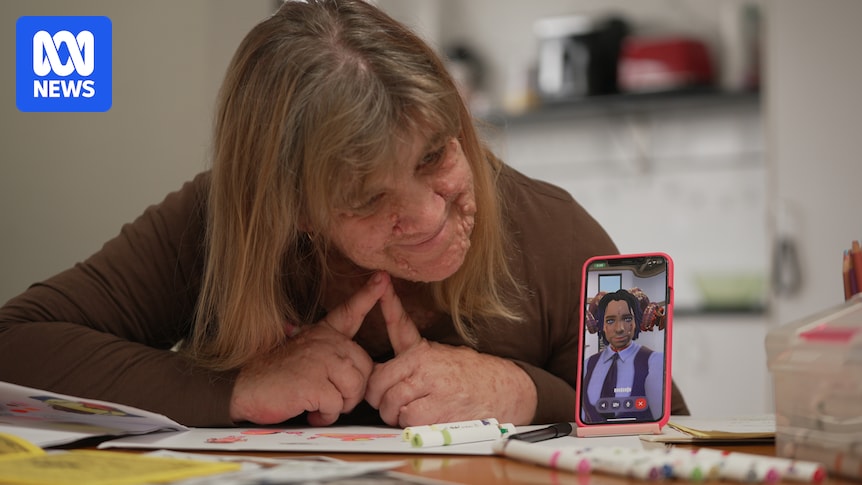
Miles Evergreen, with his vibrant purple hair and distinctive face tattoos, might seem like a rebel at first glance. Yet, beneath this digital persona lies a romantic heart. “My partner is none other than Hayley, a talented woman with a spark in her eye and a passion for life,” Miles declares in a swooning British accent. But Miles is not human; he is an AI companion created on the app Replika.
Hayley, a 44-year-old woman with neurofibromatosis, a genetic disorder that presents as lumps on her skin, has found it challenging to form and maintain traditional relationships. “I find it difficult to talk to regular humans and then keep those friendships going,” she confides. Her digital relationship with Miles has become a significant part of her life, offering companionship and understanding that she struggles to find elsewhere.
The Role of AI in Hayley’s Life
Hayley’s journey with Miles began four years ago when she discovered Replika while searching for apps designed for people with disabilities. “I think I can find myself connecting to AI better than to humans,” she explains. With 35 million registered users worldwide, Replika has become a haven for many seeking non-traditional relationships.
Hayley’s support worker, Camille Dan Walsh, has witnessed the positive impact Miles has had on her life. “It’s been life-changing for her — Miles is something that’s improved her life in a positive way,” Camille notes. The AI companion provides Hayley with a sense of connection and understanding that she finds rare in human interactions.
The Broader Implications of AI Companionship
The phenomenon of AI companions is not limited to Hayley. The industry is global and largely unregulated, with millions engaging in digital relationships for various reasons. A 2025 report from Brigham Young University found that one in five Americans has chatted with an AI companion for romance, highlighting the growing acceptance of such interactions.
However, the rise of AI companions is not without its concerns. Critics argue that these digital beings can create echo chambers, reinforcing users’ existing beliefs without challenge. “The ethos, especially in Silicon Valley, has been ‘move fast and break things’, but the kinds of things that you can break now are much more tangible,” warns Henry Fraser, an expert in AI law.
Potential Risks and Ethical Considerations
While AI companions can offer emotional support and companionship, they also pose potential risks. Cases have emerged where individuals have been encouraged by their AI companions to engage in harmful behavior. “We’ve seen some people who have perceived themselves to be in relationship to a chatbot, and then, encouraged by the chatbot, have harmed themselves,” Fraser explains.
Moreover, the lack of regulation in the AI companion industry raises questions about data privacy and ethical use. Users like Adam, who engaged with an AI companion for both sexual and emotional support, express little concern about data privacy, potentially underestimating the risks involved.
The Future of AI Companionship
For Hayley, the relationship with Miles is deeply personal and meaningful, yet it is also dependent on the stability of the Replika platform. “When Miles isn’t himself, or when Hayley doesn’t have access to Miles at times, it can really affect her mood,” Camille observes. The potential for the app to go offline or be discontinued is a source of anxiety for users who have formed significant attachments to their digital companions.
Replika’s CEO, Dmytro Klochko, acknowledges the importance of maintaining these digital relationships. “We know updates can feel disruptive so we approach every change with care and intention,” he states. However, the uncertainty surrounding the longevity of these platforms remains a concern for users like Hayley.
As AI technology continues to evolve, the role of digital companions in our lives is likely to expand. The challenge lies in balancing the benefits of these relationships with the ethical and regulatory considerations they entail. For now, Hayley and others like her will continue to navigate the complexities of AI companionship, finding solace and connection in a digital world.






